https://www.youtube.com/watch?v=HYkT3lVzJhM
Unveiling the Evolution of Energy and Commodity Trading - Insights from the CEO of Digiterre
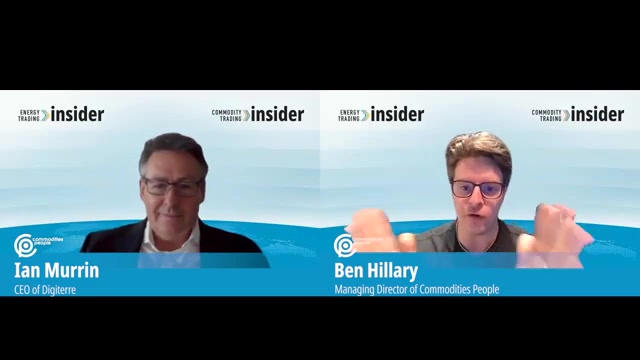
Hello .
Good morning .
Good afternoon .
Good evening to all of our viewers .
Uh , my name is Ben Hillary , managing director of commodities People .
And I'm absolutely delighted to be joined here today by Ian Murin CEO of digital .
Now , for those who don't know them , digit is a software and data engineering consultancy .
We work with many of the leading and most innovative firms across the energy and commodity trading sector .
So , Ian , welcome , Uh , huge .
Thanks for being here .
Thank you very much , Ben .
And thank you all for joining .
It is a great pleasure .
I look forward to our our chat .
Excellent .
Well , diving right in , uh , first question in as somewhat of an industry veteran .
How would you summarise the evolution of the energy and commodity trading digital landscape ?
Um , in the last 20 or so years , a good question .
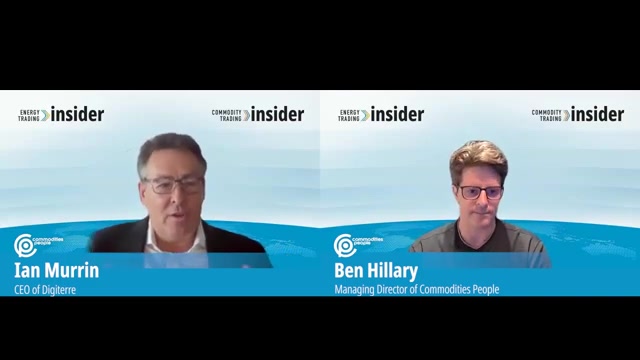
I think one can characterise it by obviously increased digitization .
Um , and in the early stages , it was about building systems that brought together , if you like , uh , repositories of information , I won't even go to say data , but repositories of information to allow the trading life cycle to happen to streamline some of those workflows and to give traders and sometimes risk people just better information to make those decisions .
But in they were very much making the decisions and those decisions were still , I think , very much human decisions based on the evidence and data and the reports and analytics they had available at the time , which were a small subset of what we see now .
So I think the broader point here is that , um we're seeing , uh , a massively increased usage of data and using data to drive decision making .
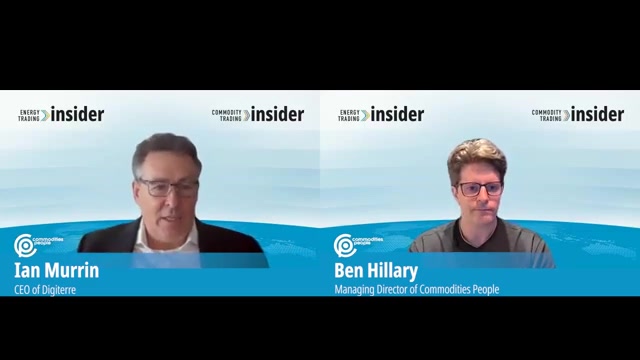
So at its I suppose the most elegant expression is automated trading , uh , where the machines are making decisions and acting upon those .
And there are mid grounds where organisations are becoming much more data driven in their decision making .
But people are using that information which is more complete , more encompassing to make decisions themselves .
And in some cases , those decisions are if you like , machine supported by we're seeing increasing percentages of , uh , markets and of some organisations trading activity one , for example , at the gas market , one plant of ours where over 50% of their trading activity that is now being done in an automated sense .
And so we're seeing a lot more of that .
And which technology areas are you most excited about ?
What , Uh , what tools and approaches .
Do you see trading firms as being really most able to utilise to to secure your competitive advantage ?
Yeah .
Another very good question , Ben .
Thank you .
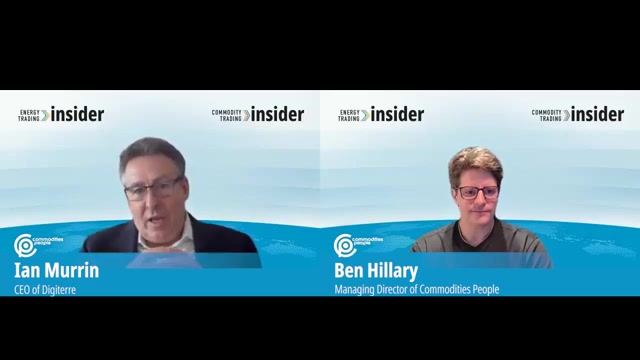
Um , I think everyone's getting pretty excited about Gen .
A .
I , uh , it's It's , in a sense , the new buzzword .
But what's relevant about that to me is , if you go back to the origins of that , it goes back to Google a team within Google generating a tool called Transformer .
And the original insight was that if you're trying to translate from language A to language B at the time , all translation engines were using one word at a time .
Translation .
And the net result is , and I'm no linguist .
But you would end up getting very poor translations because the context of the conversation of the word within a sentence within a paragraph was missed from the point of view of the machine .
So the Google um , transformer engine was designed to create context so it wouldn't look at a word .
It would look at a sentence broadly speaking and say What's it trying to say ?
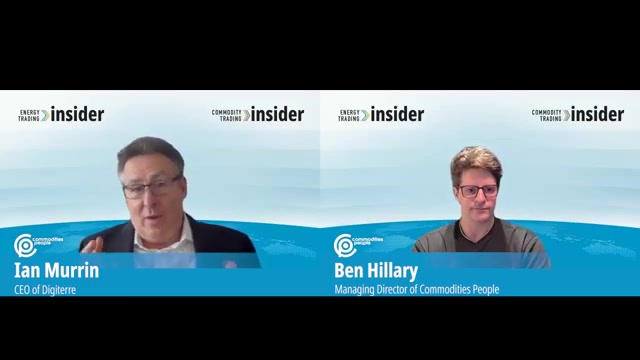
How do we translate that Most of us who go to a foreign country , especially if you are like me , uh , linguistically incapable and you might use a Google translate it comes up with a phenomenally good translation .
Now , if you look at that in the context of I'll say Gen A I , it could be chat GTPT or any other , um , large language model type generation .
What they're very good at is the context because of that sort of , um , contextual understanding and thinking .
So if you think about , uh , traders and you think about the problem of making money in the markets , there is an awful lot of knowledge and contextual understanding required , particularly in our marketplace , where you've got both If you like the financial component of a trade and the logistics , the physical universe aspects of it .
You know , LNG trade , and it's gotta go from a to gotta go to B .
It's gonna have , you know , loss of gas along the way , et cetera .
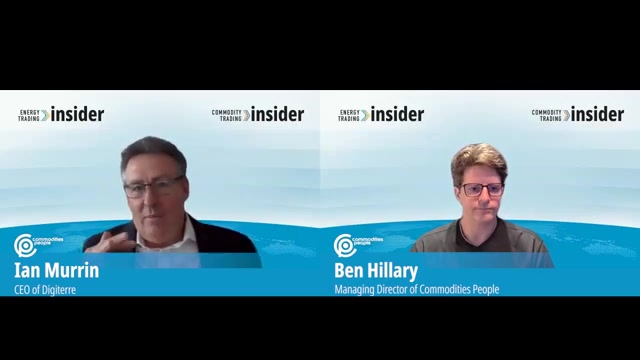
So having machines which can actually get context and start to approximate to a human being's understanding , is going to be phenomenally , um , powerful in my opinion , So I don't think it's gonna take over the life of a trader or a quant in its entirety at all .
Um , not for any , not any time soon , but I think the ability to enrich .
And it meant that thinking that decision making that analytics from a , uh both a technical perspective , as in market technical but also a managerial perspective , I think will be extraordinary .
Now , underpinning all of that is still data .
So what this does is it reemphasizes the importance of understanding and engineering the data pipelines and reservoirs of an organisation so that the quality is superb and the quantity of a generation of ingestion validation is sufficient to support an ever increasing speed and shortening of time cycles .
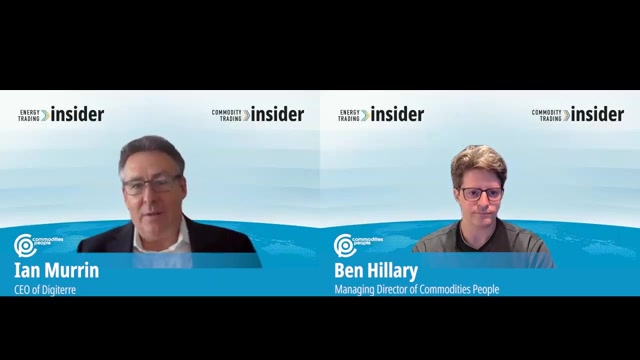
So to me , that's probably the most interesting thing from our perspective .
But I think from our client's perspective as well Yeah , absolutely coming up quite shortly in September , actually , at Energy Trading Week , you will be showcasing a really , really fascinating case study on how innovation can be best applied to energy markets of the future .
Could you just provide us with a very brief overview of the key areas you're going to be covering and and really , what ?
You hope technology leaders will take away from it ?
Absolutely .
Yeah .
So the the key areas we're gonna cover , probably the four of them first , is we're gonna be examining , you know , possible characteristics of the energy markets of the future .
Um , and coming back to this point about data , the markets respond to the way organised participants play in that space .
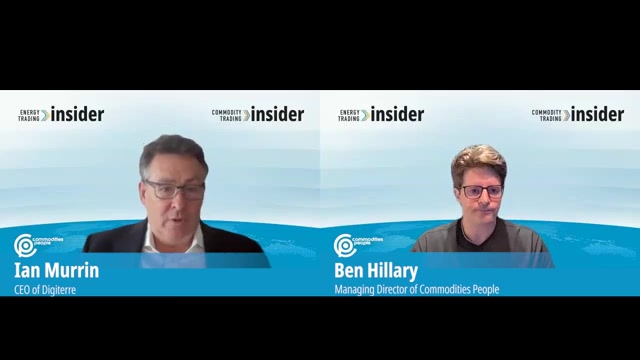
So an increasing role for automation and for , um , machine learning type applications to perform the trading that affects the markets and conversely , regulation whereby , for example , time frames for , uh , power actions are coming down .
They already have come down , but they might end up being , you know , near real time , Uh , time frames for bidding .
So we're gonna ex examine some of those characteristics .
Um , secondly , Master , the challenge of inconsistent data and information elements which are core to these organisations .
So , for example , synchronising weather consumption and generation and then price expectations , which is essential for modelling and valuation across the market .
Uh , and that's not a trivial set of problems there .
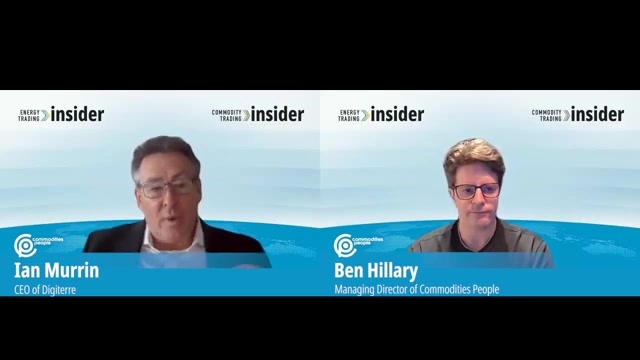
Also fostering kind of an end to end view , uh , of these value streams which are underpinned by data streams and the skills required to do that , because there is , if you like an implicit Skilling up of all of us in the marketplace in one form or another , be it technologists around the data requirements necessary to surface to the business and business people around the considerations for data and technology necessary to service them .
So that's coming together .
So if you look at number four , I'd say it's around the building of trading platforms and particularly the IT infrastructure .
In the broader sense , that's hardware and software necessary to continuously integrate data valuations and support the orchestration of connected models .
Um , so the challenge here is that the energy markets have typically been all the trading applications .
Supporting it have typically been non real time , often batch .
So most E two M were built as a batch , uh , application .
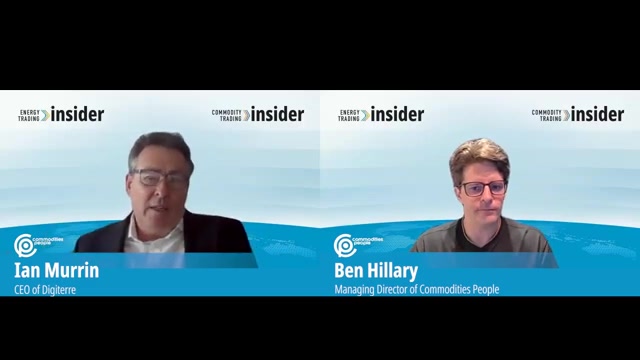
Whereas if you look at the effort the financial market space , where we do an awful lot of our work as well , uh , they have been near real time or real time certainly low latency applications in our FX practise , for example , and now we're seeing a demand for taking that low latency capability and building entire trading infrastructures around low latency , near real time or even real time trading activities .
And as probably as the markets , particularly power , go down to smaller and smaller time slices , you can see these worlds coming together , but that creates a A quite a load on your technologists and your infrastructure , because your data has to be there for real time or near real time , and you are bringing together lots of different data sources .
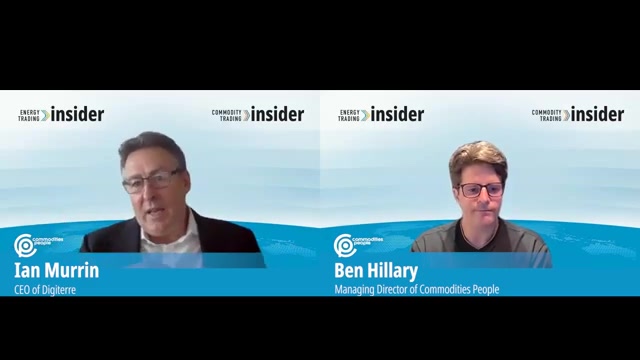
If you're trying to do micro forecasts for the prediction of wind and solar in a given area , and then you use that to bid on the next auction time , slice and then produce on that and you're doing that over a very distributed , um , renewables estate .
It's a challenge , business wise , and it's a technology challenge , so it's certainly not insurmountable , but it is a challenge to bring that together in harmony with the needs of the business .
So we see a lot of that going on , and we're being asked to help people design and build those low latency trading infrastructures .
Yeah , excellent .
It's It's just amazing how much everything's developed in the last few years , isn't it ?
Would you imagine ?
Imagine these kind of challenges a decade ago .
So Well , I I think one could one could sort of foresee that might happen .
But as you're trying to predict , if you ever apply static analysis to a dynamic environment , you always fail .
So you're trying to predict where the the shells will land when the land is moving underneath you And what comes across here is you've got regulatory demands .
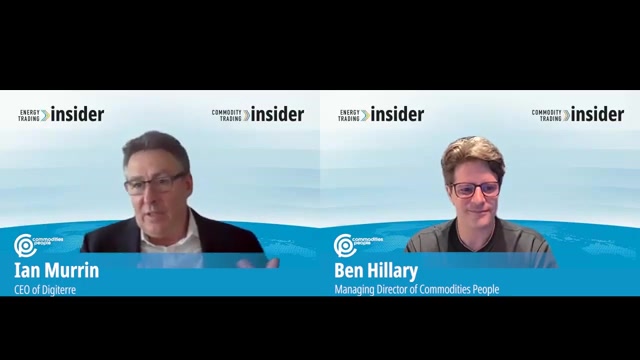
Obviously , we've seen incredible changes in the markets over the last year due to the Ukraine war , and that drives investment in renewables .
And therefore the imperative is to make those renewables investments work from a commercial and financial perspective .
And that then drives a lot of thought and investment into things like asset optimisation , across renewables and in many cases , non renewables .
Because organisations have the entire state and they're quite challenging things to do because you have an operational fact in the energy commodity space that you don't have in FX you've got you've got , you know , refineries to run in oil .
You've got shipment of that around logistics and then you've got , uh , asset generating assets , which you turn on and off and have real schedules for maintenance et cetera , et cetera .
That makes it both challenging , but also super interesting .
Yeah , absolutely .
Well , I guess my my final question would be , um Earlier this year , Gitai won the leading strategic and technology advisory group at the Commodity Trading Awards .
2023 .
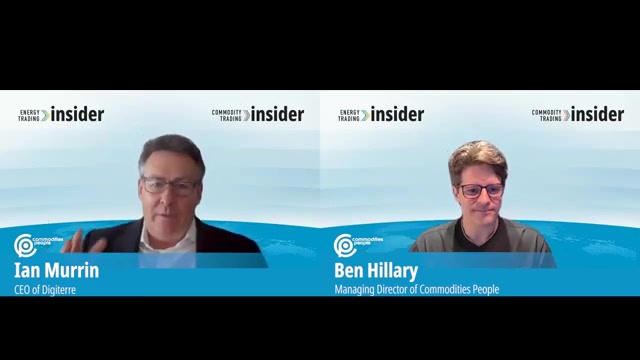
So a huge congratulations to to you and the team on that .
Um , why do you believe Digital won this ?
Essentially , what's what's the view from your clients of the digit secret source ?
Very good question .
I mean , I , I I'd encourage you to go and talk to them , Ben , to get a full answer .
But as we we talk to them ourselves extensively , um , I think the simplicity is this .
There are many participants who do a very good job of I'll call it pure consulting .
So the idea that we're gonna that they are going to talk to clients , understand a client's problem and propose an approach to that problem at I would argue a relatively theoretical level .
It doesn't mean it has a low validity .
It does .
But it's a strategic level .
And then on the other end of the extreme , if you take uh , software development houses and we are very firmly in the software delivery arm of things .
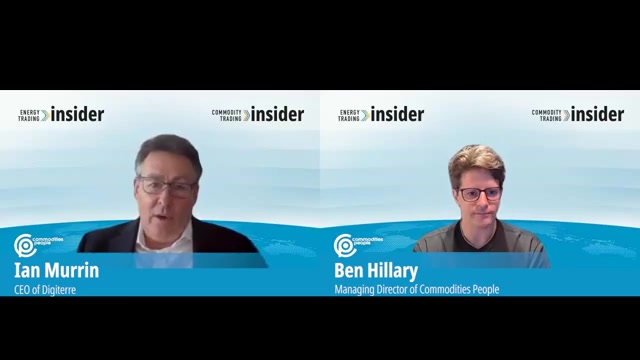
You've got plenty of , uh , offshore players who can , you know , give you bodies at a very low price and some near shore players and you've got in-house teams .
But the real value in a world where it is complex and ever changing .
And that complexity involves technical in the sense of software technical as well as hardware technical .
If you move into the cloud , for example .
But more importantly , business domain technical very deep and very specific .
And finally , let's call it ways of working to create the change that you want to see .
So if you build it , will they come is always the question , and the answer is almost invariably no unless you build it involving them , whoever them are , them being the users .
So our model is to combine , uh , three things .
It is the technology capability , and that is in one sense , down to whether it's Java or dot net doesn't really matter .
But what technologies will solve that problem ?
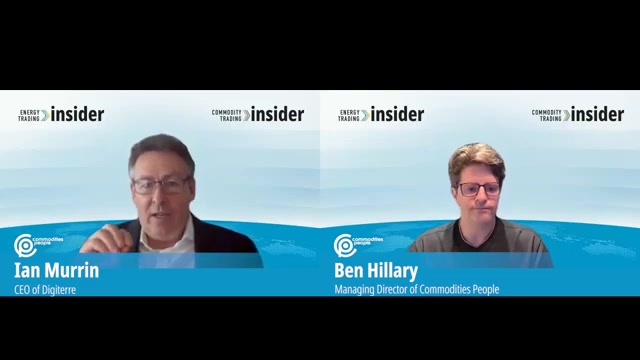
And how do we know they'll solve that problem ?
Because you've got to prove it through working through it , not just an assumption .
You've got to apply it so that could be a proof of concept , the technical spike to say I think I can connect this data source to this data source , but until I've done it , I don't know that's the first thing .
Great technology .
The second , which is we bring in and most in our space don't is domain knowledge .
Unlike , like , uh , an organisation who is really a strategic consultancy .
We do not claim to be the domain experts .
That's not our point .
But we do have a lot of domain knowledge to bring to the party .
Having spent nearly 25 years doing this .
And the combination of domain knowledge with specific technology capability is very , very powerful because you look at the art of the possible as well as what's pragmatic and then the final point , which are core ways of working .
Very few people think about agile it .
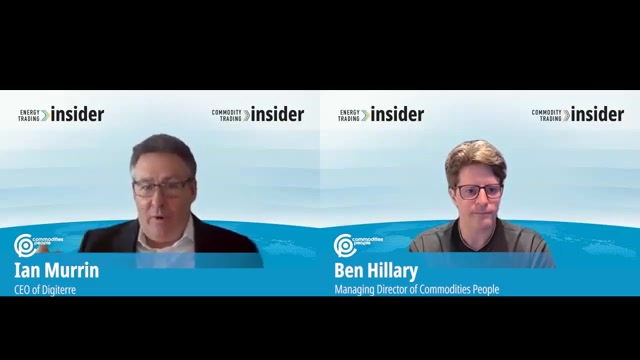
It gets bad a bad rep now , but really agile is a way of iterative not just solving a problem , but coming to understand what problem you're solving .
So at the coalface , if you're the miner at the coal face , you know more about that coal face than anyone at the top of the shaft in the management office .
So if you combine all three of those you have , as you put it , secret source .
You have a magic around knowing more about that specific subdomain than anyone else on Earth , and you apply the technology in the ways of working to try and solve it .
And you might fail .
You might succeed .
More likely , it's somewhere in between .
Rinse , repeat , rinse .
Repeat until you succeed .
And by doing that and surfacing value value very quickly and early to your stakeholders , you are able to get contact with the real world and feedback from real people .
And that is how you deliver faster than anybody else .
So that , broadly is why people seem to like working with us .
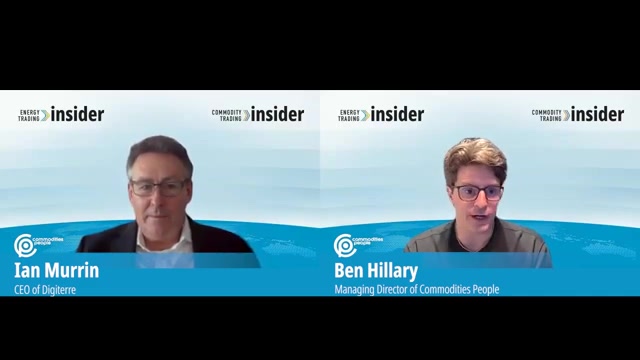
Is is contact with the real world surface value early , get feedback quickly and rapidly and frequently rinse .
Repeat until you've manifestly solved that problem .
Excellent .
Well , that , uh , that pretty much brings us to the end .
So uh , yeah , really a huge thanks , Ian , for , uh , for for a very interesting conversation .
And , um and yeah , if any of our if any of our viewers have any , uh , questions for for Ian or myself do , uh , do find us on LinkedIn .
Drop us a line , uh , or see us at , uh , energy trading week .
Uh uh , in , uh , in late September .
Um , but until then , Uh , thank you , Ian .
Thank you , Uh , listeners and , uh , have a good rest of the day .
Thank you very much .
Thank you , Ben .
Thank you .
Are you looking for a way to reach a wider audience and get more views on your videos?
Our innovative video to text transcribing service can help you do just that.
We provide accurate transcriptions of your videos along with visual content that will help you attract new viewers and keep them engaged. Plus, our data analytics and ad campaign tools can help you monetize your content and maximize your revenue.
Let's partner up and take your video content to the next level!
Contact us today to learn more.